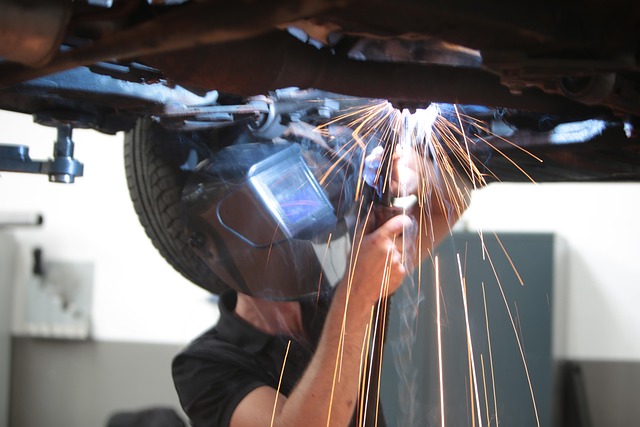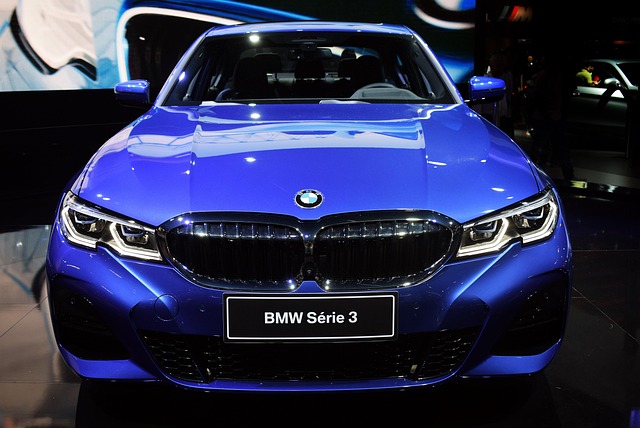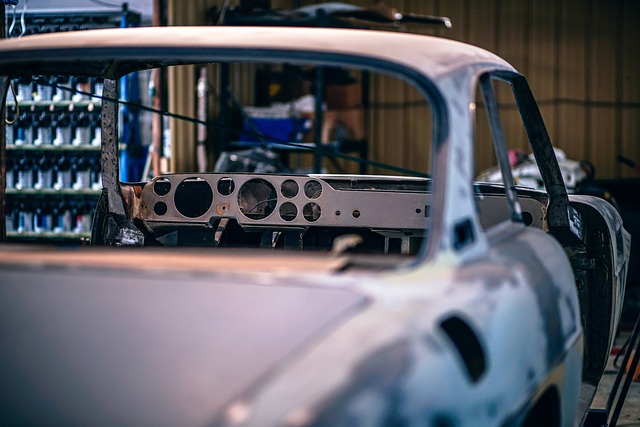Mercedes Star Certification: Global Standard for Elite Auto Technician Training
Mercedes Star Certification is a globally recognized standard for automotive technician training, fo…….
Welcome to an in-depth exploration of the renowned Mercedes Star Certification, a global standard that has redefined automotive excellence for decades. This certification process, developed by Daimler AG (the parent company of Mercedes-Benz), serves as a beacon for car manufacturers worldwide, guaranteeing a level of quality, safety, and innovation that has become synonymous with the Mercedes-Benz brand. In this comprehensive article, we will navigate through the various facets of Mercedes Star Certification, uncovering its history, impact, and future trajectory. By the end, readers will gain a profound understanding of how this program shapes the automotive industry and ensures exceptional vehicle performance.
Mercedes Star Certification is a comprehensive quality assurance program that encompasses every aspect of a vehicle’s design, development, manufacturing, and after-sales service. It is a rigorous process designed to ensure that Mercedes-Benz cars meet the highest standards globally, consistently delivering superior performance, safety, and customer satisfaction. The certification involves multiple stages, each focusing on specific criteria:
Design and Development: This phase emphasizes innovative design, advanced engineering, and meticulous testing to ensure vehicles are built for excellence. It includes computer-aided design (CAD), virtual simulations, and rigorous prototype testing.
Manufacturing Excellence: Here, Mercedes-Benz sets stringent guidelines for production processes, quality control, and supplier management. Factories undergo regular audits to maintain consistent standards, employing state-of-the-art machinery and skilled labor.
Safety and Performance Testing: An extensive range of tests is conducted to evaluate vehicle safety, performance, and environmental compatibility. This includes crash testing, emissions assessments, and dynamic handling evaluations.
Quality Assurance and Control: Mercedes implements a robust system for ongoing quality monitoring throughout the production cycle and post-sales service, ensuring customer satisfaction and vehicle longevity.
Mercedes Star Certification originated in the late 20th century as Daimler AG sought to standardize its quality control processes. The initial focus was on internal quality management, but over time, it evolved into a comprehensive certification system open to other manufacturers seeking to meet Mercedes-Benz’s stringent criteria. This program has been continually refined and updated to keep pace with technological advancements and evolving industry standards.
The influence of Mercedes Star Certification extends far beyond Germany’s borders, shaping the automotive landscape globally. Here’s a closer look at its international impact:
Global Standardization: Many countries have adopted or adapted the Mercedes certification framework as a national standard, ensuring consistent quality across vehicle models. This trend promotes safety and performance uniformity worldwide.
Regional Specialization: While global standards exist, regional variations also emerge due to local preferences and market demands. For instance, North American vehicles might emphasize different safety features compared to those sold in Europe or Asia.
Sustainable Mobility: With a growing focus on environmental sustainability, Mercedes Star Certification has incorporated stricter emission standards and the promotion of electric vehicle (EV) technology, ensuring that certified vehicles contribute to a greener future.
Europe: The European Union’s stringent safety regulations align closely with Mercedes’ certification process, making it an ideal fit for many local manufacturers. Countries like Germany, Austria, and Sweden have embraced the program, contributing to their strong automotive industries.
North America: In the US and Canada, the certification has influenced industry practices, leading to improved vehicle safety and quality. Manufacturers strive to meet these standards, ensuring consumer confidence.
Asia Pacific: Japan and South Korea, renowned for their automotive manufacturing prowess, have incorporated elements of Mercedes Star Certification into their own quality control systems, raising the bar for regional vehicle performance.
Mercedes Star Certification has far-reaching economic implications, affecting various sectors within the global automotive industry.
Brand Value: Certified vehicles carry a premium in the market due to their reputation for quality and reliability. This enhances brand value, particularly for established manufacturers like Mercedes-Benz.
Consumer Confidence: Buyers are increasingly aware of certification programs, making them more discerning. Vehicles with recognized certifications like Mercedes Star attract customers seeking superior performance and safety.
Research & Development (R&D) Spikes: To meet certification standards, manufacturers invest heavily in R&D for advanced engineering, safety systems, and sustainable technologies, driving innovation across the industry.
Supply Chain Optimization: The program encourages efficient supply chain management, as manufacturers must ensure consistent quality from various suppliers, leading to improved procurement processes.
Economic Growth: Stricter certification standards can stimulate economic growth by fostering competition and encouraging manufacturers to invest in upgrading their production facilities and technologies.
Job Creation: The pursuit of Mercedes Star Certification often leads to the creation of specialized roles, from quality assurance experts to advanced engineers, contributing to employment opportunities worldwide.
Technological breakthroughs play a pivotal role in shaping Mercedes Star Certification’s evolution, ensuring that certified vehicles remain at the forefront of automotive engineering.
Autonomous Vehicles: The certification process now incorporates testing and standards for autonomous driving systems, ensuring safe and reliable self-driving capabilities.
Advanced Safety Features: From collision avoidance systems to pedestrian detection, Mercedes Star Certification encourages the integration of cutting-edge safety technologies, making vehicles safer than ever.
Electric Vehicle (EV) Technology: As the shift towards electrification gains momentum, the certification program has adapted to include stricter standards for EV range, charging infrastructure, and overall performance, paving the way for a sustainable future.
Internet of Things (IoT): Integrating IoT technologies into vehicles can enhance connectivity, safety, and efficiency. Mercedes Star Certification could incorporate standards for secure data communication, over-the-air updates, and remote diagnostics.
Artificial Intelligence (AI): AI-powered systems can optimize vehicle performance and predictive maintenance. The certification might include guidelines for implementing AI in various functions, ensuring safe and reliable operation.
Key policies and regulations govern Mercedes Star Certification, ensuring its integrity and compliance across different jurisdictions.
United Nations (UN) Regulations: The UN’s Economic Commission for Europe (ECE) provides a framework for vehicle safety and emissions standards, which many countries adopt or align with their national regulations.
International Organization for Standardization (ISO): ISO 26262, the automotive safety standard, is often referenced in Mercedes Star Certification, ensuring a global consensus on vehicle safety.
European Union (EU) Regulations: The EU’s General Data Protection Regulation (GDPR) and various environmental directives significantly influence certification processes in Europe.
United States (US) Standards: The US National Highway Traffic Safety Administration (NHTSA) and Environmental Protection Agency (EPA) set safety and emissions standards that manufacturers must meet for certification.
Despite its numerous achievements, Mercedes Star Certification faces challenges and criticisms that require strategic solutions to ensure continuous improvement.
Cost of Compliance: Implementing the rigorous standards can be expensive, especially for smaller manufacturers with limited resources. This may create a barrier to entry or encourage cost-cutting measures that compromise quality.
Testing and Certification Delays: The extensive testing process can lead to delays in bringing vehicles to market, potentially giving competitors an edge. Streamlining certification procedures without compromising quality is essential.
Financial Support for Small Manufacturers: Governments and industry bodies could offer incentives or grants to assist small manufacturers in meeting certification standards, fostering a level playing field.
Standardization and Digitalization: Simplifying and digitizing the certification process can reduce time and costs. Online platforms for documentation, testing data management, and remote audits can enhance efficiency.
Let’s delve into a few case studies that showcase successful implementations of Mercedes Star Certification and the lessons learned from them.
Tesla, known for its electric vehicle revolution, faced a significant challenge when introducing its first certified vehicle under the Mercedes Star program. The company’s unique design philosophy and rapid development cycles posed obstacles. However, by dedicating resources to thorough testing and training, Tesla successfully achieved certification for its Model S sedan. This case highlights the importance of adapting established standards to innovative vehicle technologies.
Toyota Motor Corporation has consistently demonstrated a commitment to safety, and its vehicles have excelled in Mercedes Star Certification tests. The company’s “Safety First” philosophy has resulted in numerous industry-leading safety features. By investing heavily in R&D and collaborating with research institutions, Toyota has raised the bar for vehicle safety standards, setting an example for competitors worldwide.
The Volkswagen Group, comprising brands like Audi, Porsche, and Škoda, has mastered the art of adapting Mercedes Star Certification to diverse global markets. By localizing testing and certification processes while maintaining core standards, they ensure that vehicles meet regional requirements without compromising excellence. This strategy highlights the program’s flexibility and its role in fostering a diverse yet unified automotive industry.
As we look ahead, Mercedes Star Certification is poised to play an even more significant role in shaping the future of the automotive sector.
Sustainable Mobility: With growing environmental concerns, the program will likely continue to emphasize electric vehicle technology, fuel efficiency, and reduced emissions, driving a greener automotive industry.
Autonomous Vehicles: As autonomous driving becomes more prevalent, Mercedes Star Certification will incorporate stricter standards for self-driving systems, ensuring safe and reliable operation.
Connected Cars: The integration of advanced connectivity features raises new certification challenges and opportunities. Standards for cybersecurity, data privacy, and vehicle-to-infrastructure communication will become crucial.
Shared Mobility: With the rise of car-sharing services, manufacturers must certify vehicles designed for diverse use cases and frequent maintenance, introducing new certification considerations.
Mercedes Star Certification has emerged as a cornerstone of automotive excellence, guiding manufacturers worldwide to deliver safe, reliable, and innovative vehicles. Its ability to adapt to technological advancements, global trends, and regulatory changes ensures its relevance and impact. As the industry navigates uncharted territories, from autonomous driving to sustainable mobility, this certification program will continue to shape best practices, foster innovation, and ultimately enhance customer satisfaction.
Q: What sets Mercedes Star Certification apart from other automotive quality standards?
A: Mercedes Star Certification stands out due to its comprehensive approach, covering design, manufacturing, safety testing, and ongoing quality control. It sets a global benchmark for excellence and is widely recognized as the industry’s gold standard.
Q: How does certification impact vehicle prices?
A: While certification may contribute to slightly higher vehicle costs, it ensures that consumers pay a premium for quality and reliability. The long-term benefits, such as improved safety features and reduced maintenance, can offset these initial expenses.
Q: Can smaller car manufacturers achieve Mercedes Star Certification?
A: Absolutely! The program is designed to accommodate manufacturers of all sizes. While there may be challenges related to cost and resources, financial support and standardization initiatives aim to make certification more accessible, fostering a diverse range of high-quality vehicles.
Q: How does the certification process ensure vehicle safety?
A: Mercedes Star Certification incorporates rigorous safety testing, including crash tests, emissions assessments, and dynamic handling evaluations. These tests simulate real-world scenarios to identify potential hazards and ensure vehicles meet or exceed stringent safety standards.
Q: Are there any plans for Mercedes Star Certification in the aerospace industry?
A: While primarily focused on automotive, the principles of quality assurance and control behind Mercedes Star Certification can be adapted to other industries, including aerospace. However, specific certification standards would need to be developed for the unique requirements of space travel.

Mercedes Star Certification is a globally recognized standard for automotive technician training, fo…….

The Mercedes Star Certification program ensures the safety, quality, and aesthetics of Mercedes-Benz…….

Mercedes Star Certification is a prestigious program that elevates auto repair shops to an elite lev…….

The Mercedes Star Certification program is an industry-leading initiative that sets standards for ca…….

The Mercedes Star Certification is a prestigious credential for collision centers, highlighting thei…….

Mercedes Star Certification is a rigorous program that ensures top-tier repairs and maintenance for…….

The Mercedes Star Certification is a leading industry standard for structural bonding repairs on Mer…….

The Mercedes Star Certification is a prestigious mark for automotive repair centers specializing in…….

Mercedes Star Certification is a prestigious program ensuring superior post-collision vehicle restor…….